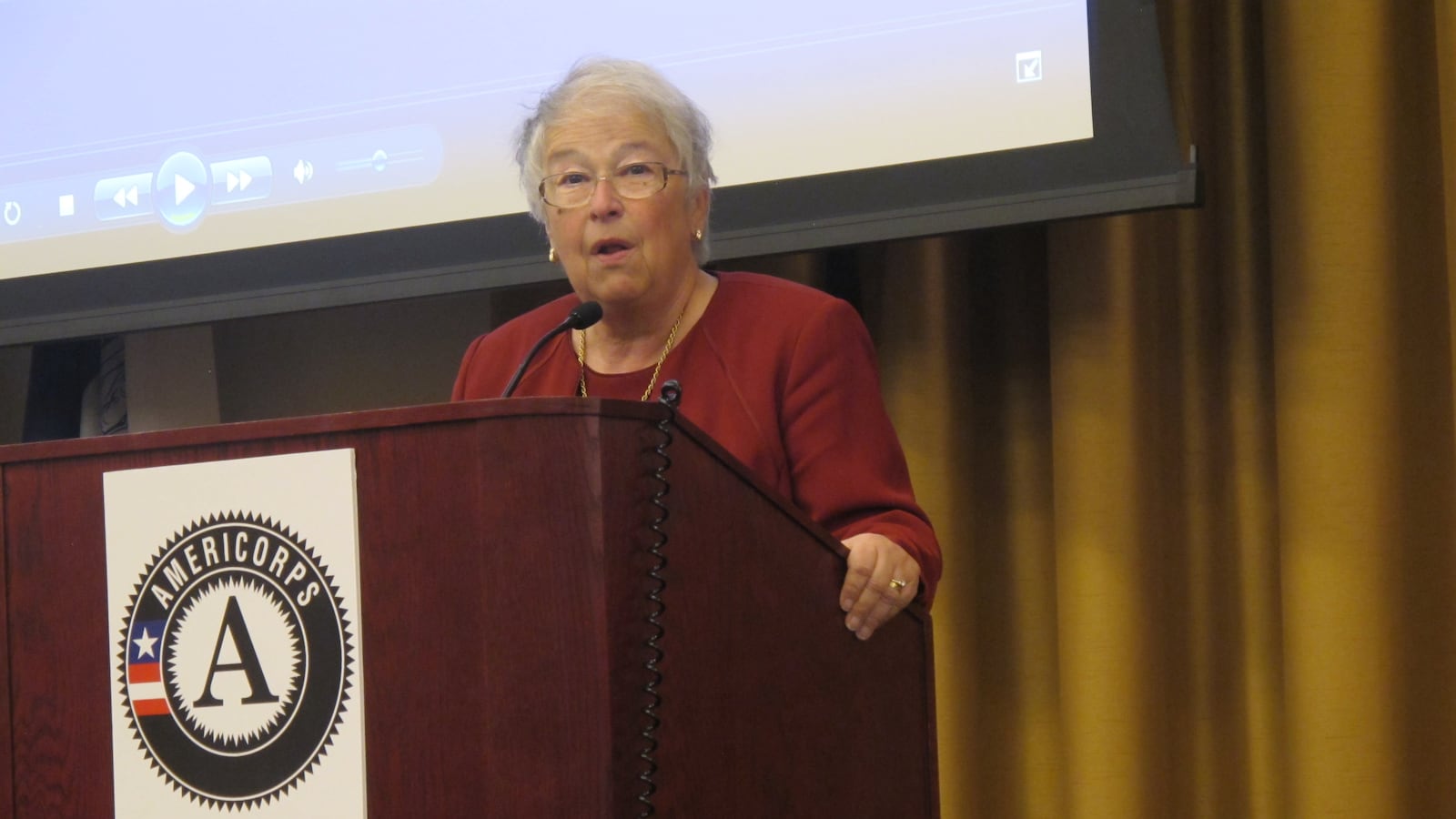The city’s signature school-improvement initiative is getting a helping hand from the nation’s largest service agency, Chancellor Carmen Fariña announced today.
Americorps will spend $5.8 million over the next two school years to place a civil service volunteer in each of the nearly 130 schools that the de Blasio administration is converting into “community schools.” The initiative is a campaign pledge for Mayor Bill de Blasio and includes the 94 low-performing schools that are part of the mayor’s much-scrutinized Renewal program.
Officials touted the partnership as one of many ways that outside groups will flood needy schools with different kinds of support, ranging from expanded social services, extra academic support, and more enrichment activities. The job of each Americorps member will be to tutor and mentor students and provide outreach to parents, with an eye toward reducing chronic absenteeism, one of the metrics that officials are monitoring to measure progress in the schools.
“Sometimes a child comes to school because they’re going to see you,” Fariña said to an audience of service members at Baruch College, where she announced the grant with Americorps director Bill Basl and the city’s Chief Service Officer, Paula Gavin. “Not their teacher, not their classmates, but they’re there to see you. And they look forward to seeing you because you’re closer to them in age, you’re going to greet them in a different way and you’re going to socialize with them in a different way.”
Americorps, a public and privately-funded federal agency established in 1993 by President Bill Clinton, has long connected people to work in New York City schools, including as teachers through Teach for America and the New York City Teaching Fellows. More than 8,000 members are currently working in New York City, many of which work in schools through other education nonprofits like City Year, Blue Engine and Citizen Schools.
As part of their service, most members receive small stipends to cover living expenses and a $5,730 scholarship for college credits or to pay back college loans.
City officials said about 150 people would make up the first-year cohort and that one member will be placed in each of the 128 schools that de Blasio is converting into community schools, at some point during the 2015-16 school year. The remaining members will work centrally in the education department’s new community schools office or on “beautification” projects in different schools.
Although Americorps is often seen as a program for young adults between jobs or before entering college, Fariña said she’d like to use recruit parents for the roles, too.
“Wouldn’t it be great if we could train many more of our parents through Americorps so that becomes another way to get back into the work world?” Fariña said later at an education conference at New York University.
The announcement comes with less than three months left in the school year and most Renewal schools still have not finalized partnerships with main community-based organizations, a central component to de Blasio’s plan. The city is providing funds to hire a full-time community school director who will serve as the liaison between the school and outside organizations in each school.
De Blasio is planning to spend $150 million over three years to convert 94 long-struggling schools and use a $52 million state grant over four years for the remaining 34 schools.
Although they are receiving different amounts of support and resources at different paces, the schools are symbolic of the new administration’s move away from closing the city’s bottom-ranked schools, an approach favored by former Mayor Michael Bloomberg.
De Blasio’s approach, especially for the his Renewal Schools initiatives, has been the subject of steady criticism from opponents, such as charter school advocates, who say his plan lacks the urgency and aggressive changes needed to turnaround long-struggling schools. As the issue has become fodder for a debate over renewing mayoral control in New York City, de Blasio has responded in recent weeks by showcasing schools where more significant changes have taken place and sharpening his rhetoric around ridding the schools of low-performing teachers.
More than 40 of the 128 schools are further along in the process and have already partnered with a community-based organization. Officials said the pairing process for the remaining schools is in its final stages and could partnerships could be announced as soon as the next few weeks.

